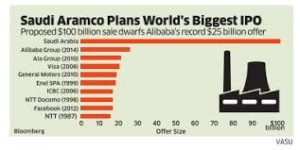One of the privileges of being a professor is to see the progress students make in a given subject area and in this case in geo-politics. As it is the end of the semester at IESE Business School, I have been reading my students’ term papers and find the topics they have chosen to work on almost as interesting as the projects themselves.
In this class the 85 students organized themselves into 21 project teams which looked at a specific company, or industry and then explore the link between business strategy and the geo-political situation of a specific part of the world they are doing business in.
- China
Probably the most remarkable statistic is that of the 21 groups, 7 of them were about China. Two different groups, for example, looked at China’s one belt and one road initiative and the impact it had on the high speed trains industry in one case and on ports in the Indian Ocean in the other.
Another group drilled down into the accommodation that many companies have done concerning China’s one China policy for example listing Taipei as being a destination in China for their customer facing websites in China. For the time being, most companies continue to list Taipei as being in Taiwan on their global sites.
A fourth group compared Belgian and Chinese manufacturers of weapons in light of Saudi Arabia’s increasing level of spending. The main point was that if the European Union chooses not to sell weapons systems to the Saudi’s, the Chinese will.

Another group looked at the fortunes of GM in China and at the specific program of building the new Buick Envision in Shanghai for export to the U.S. The question is what would happen with the program given the brewing trade war between the two countries and the opposition to the project by the Trump administration.
In terms of the Chinese consumer and Western brands, two groups looked at different examples but both highlighted the sensitivity of the Chinese to perceived slights or criticism from Western brands. In some cases, they found that “spontaneous” protests and boycotts were, most likely, initiated by agents of the Chinese government but then went viral on their own.
- Latin America
Two of the projects concerned foreign companies operating in Venezuela as that country and its current situation has been a focus of our class discussions. One concerned Bimbo, the Mexican bread giant, and the other Toyota. In both cases the students felt that by staying in Venezuela and doing what they could for their employees and customers, both companies would be seen in a positive light in the long term.
Another two projects focused on Brazil. One on the issue of Boeing’s purchase of the civilian part of Embraer and the other on Odebrecht and its part in regional corruption,
- India, Africa, and the Middle East
 Additional projects looked at the tourism industry in Kashmir, differences in social norms between India and Pakistan, the role of the Indian Diaspora in Africa and Vodafone’s difficulties to extend mobile payments to Egypt and Tanzania despite its success in Kenya. There was also a project which considered the strategic options facing Saudi Aramco as it decides where to make its initial public offering i.e. London, New York or somewhere else.
Additional projects looked at the tourism industry in Kashmir, differences in social norms between India and Pakistan, the role of the Indian Diaspora in Africa and Vodafone’s difficulties to extend mobile payments to Egypt and Tanzania despite its success in Kenya. There was also a project which considered the strategic options facing Saudi Aramco as it decides where to make its initial public offering i.e. London, New York or somewhere else.
- Other topics
Finally there were four projects on very specific topics. One dealt with the potential impact of Brexit on British Airways. A second on the issue of Catalan independence on Caixa Bank. The third was all about the role that geo-politics has had on international sporting events and the last one on the geo-political implications of the gradual legalization of Cannabis in North America.
I list all of these projects as evidence of the curiosity that women and men in the late 20s have on the geo-political issues facing the world and the implications those issues have for developing and executing business strategy.

